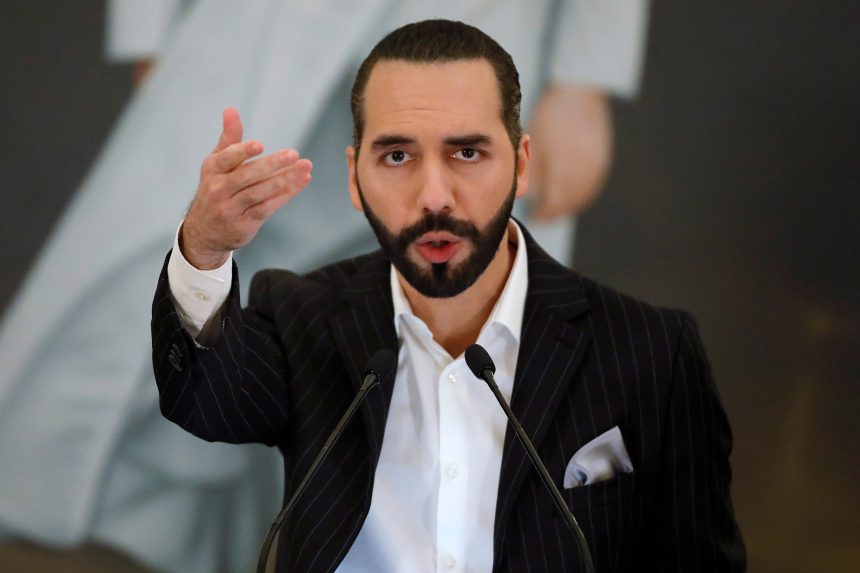In recent years, the phrase “We need a Bukele here!” has resonated across Latin American countries. The success story of Nayib Bukele, the recently reelected President of El Salvador, lies in his remarkable achievement of significantly reducing violence and gang activity in the country over the past five years. However, the question looming over international institutions is at what cost?
Bukele’s overwhelming victory in the polls on February 4th saw the other five candidates barely amassing 12% of the total votes combined. The elections became a mere formality after the Salvadoran Supreme Court gave him the green light to run for president again, despite the country’s constitution prohibiting immediate presidential reelection.
Bukele’s influence knows no bounds, with followers emerging in countries like Ecuador and Spain, where some political figures advocate for emulating his model.
The Numbers Speak for Themselves This historic milestone, unprecedented in the last 80 years, is not the only accomplishment of this charismatic young Salvadoran. While other political parties engaged in rallies and media campaigns, Bukele’s party, Nuevas Ideas, conveyed a simple message: “If Bukele loses, the gangsters return.”
Official data from January 2024 reveals that 2023 saw the lowest number of homicides in the country’s history, with only 154 recorded, translating to a rate of 2.4 per 100,000 inhabitants. In contrast, 2022 witnessed 495 homicides, equivalent to 7.8 per 100,000 inhabitants. These figures, corroborated by the UN, underscore Bukele’s impact.
The turning point came with the state of emergency declared by President Bukele on March 27, 2022, following a day that saw at least 62 people killed. Bukele declared war on the notorious gangs, known as ‘maras’, which had terrorized the country for over three decades. Since taking office in 2019, he has incarcerated over 75,000 individuals and built the world’s largest prison, capable of housing up to 40,000 offenders – the Terrorism Confinement Center.
The unveiling of this megaprison came shortly after the US government revealed indictments detailing secret agreements between the Bukele administration and the MS-13 gang to curb violence in exchange for favorable treatment for its leaders.
However, it’s essential to consider the data. In 2019, there were over 2,390 deaths, followed by more than 1,340 in 2020, primarily attributed to gang members. Homicide rates hovered between 103 and 36 per day per 100,000 inhabitants between 2015 and 2019.
The Dark Side of Bukele? While extortion and violence by gangs have decreased, it remains unclear how many prisoners (estimated between 6,000 and 20,000) have been unjustly incarcerated in a mass arrest campaign based solely on anonymous tips.
Since the state of emergency began, thousands have been subjected to torture, with over 210 inmate deaths reported. Despite this, judges have been handing down collective sentences in minutes.
Salvadorans view Bukele as a charismatic leader who has brought security to their lives, disregarding the erosion of democratic values that has led to the imprisonment of nearly 2% of the national population.
Combatting Violence with More Violence A survey by the University Institute of Public Opinion revealed that in December 2019, 70.4% of Salvadorans were concerned about crime, dropping to 4.3% by December 2023. However, Amnesty International reported in December 2023 that the country’s human rights situation was deteriorating.
Bukele offers Salvadorans the security they crave but at the cost of processing, detaining, and violating the rights of thousands of innocent people. This entails the arbitrary arrest of over 150 individuals per day, sometimes based on trivial reasons like appearance, being out at a certain hour, or walking in a specific neighborhood, notes Tamara Taraciuk, Acting Americas Director at Human Rights Watch.
Despite the controversies, the young populist leader of the Salvadoran right will remain firmly in power for the next five years, with his infamous ‘iron fist’ approach serving as a blueprint for the country. His level of popularity and media impact has even surpassed that of Pope Francis.

